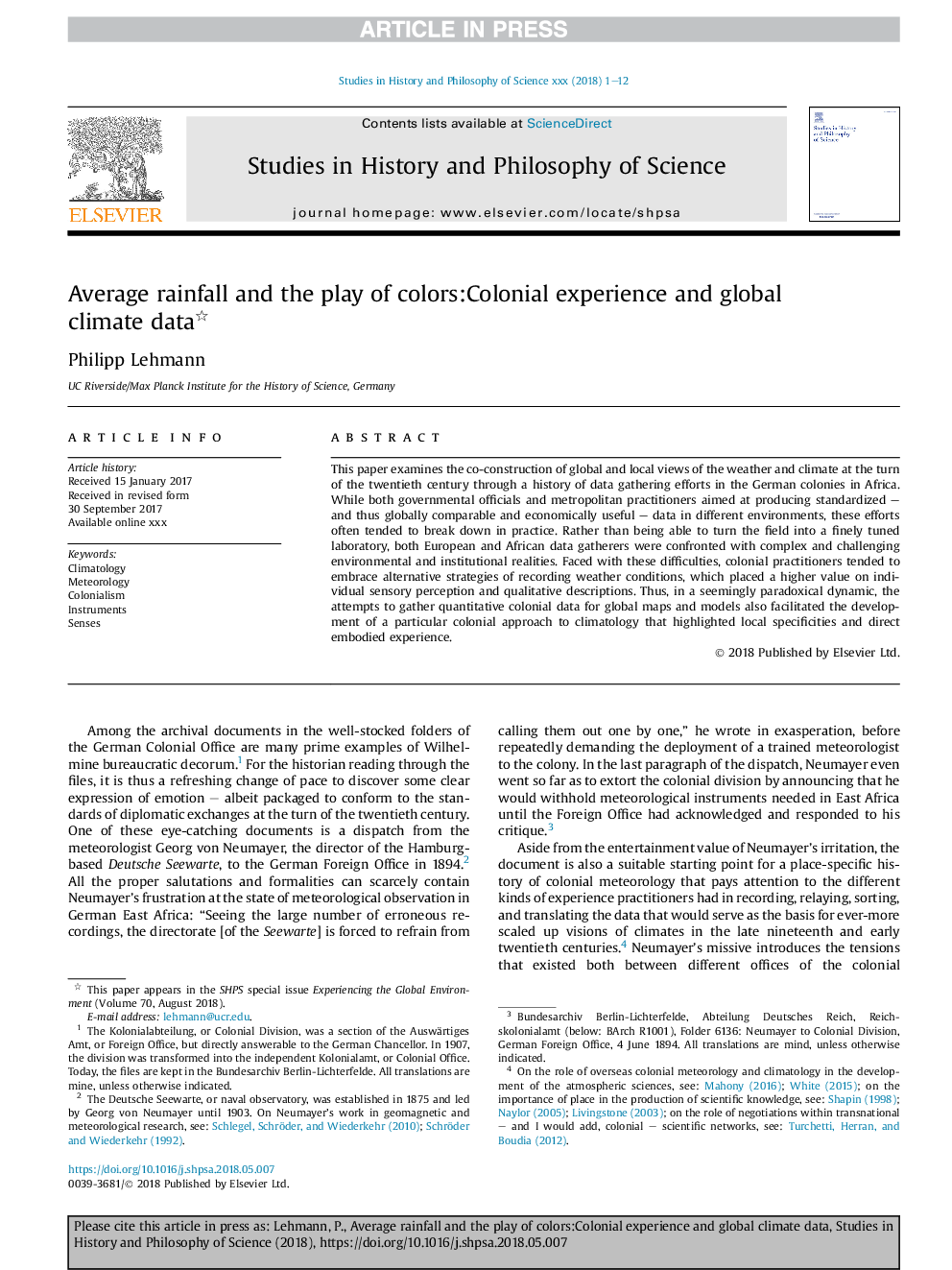| Article ID | Journal | Published Year | Pages | File Type |
|---|---|---|---|---|
| 8942599 | Studies in History and Philosophy of Science Part A | 2018 | 12 Pages |
Abstract
This paper examines the co-construction of global and local views of the weather and climate at the turn of the twentieth century through a history of data gathering efforts in the German colonies in Africa. While both governmental officials and metropolitan practitioners aimed at producing standardized - and thus globally comparable and economically useful - data in different environments, these efforts often tended to break down in practice. Rather than being able to turn the field into a finely tuned laboratory, both European and African data gatherers were confronted with complex and challenging environmental and institutional realities. Faced with these difficulties, colonial practitioners tended to embrace alternative strategies of recording weather conditions, which placed a higher value on individual sensory perception and qualitative descriptions. Thus, in a seemingly paradoxical dynamic, the attempts to gather quantitative colonial data for global maps and models also facilitated the development of a particular colonial approach to climatology that highlighted local specificities and direct embodied experience.
Related Topics
Social Sciences and Humanities
Arts and Humanities
History
Authors
Philipp Lehmann,
